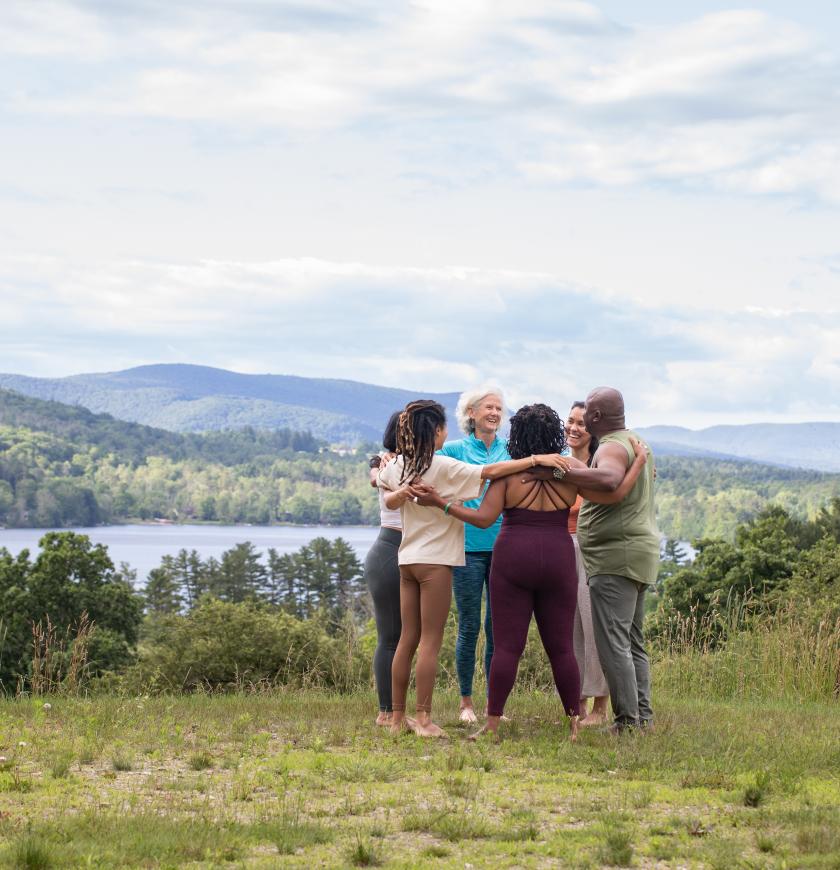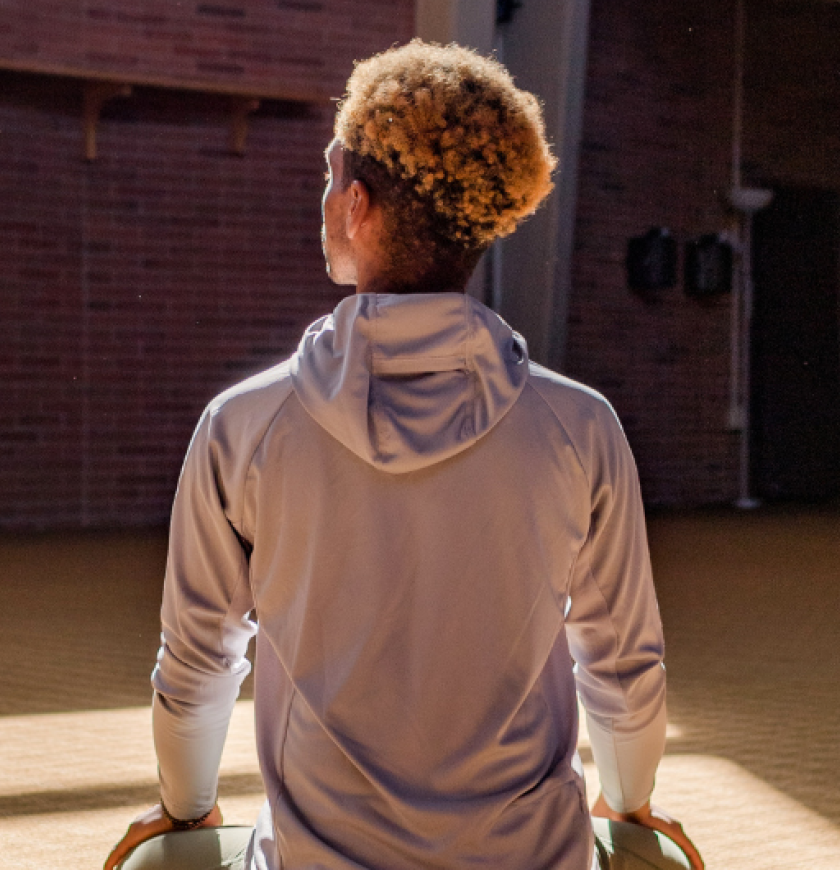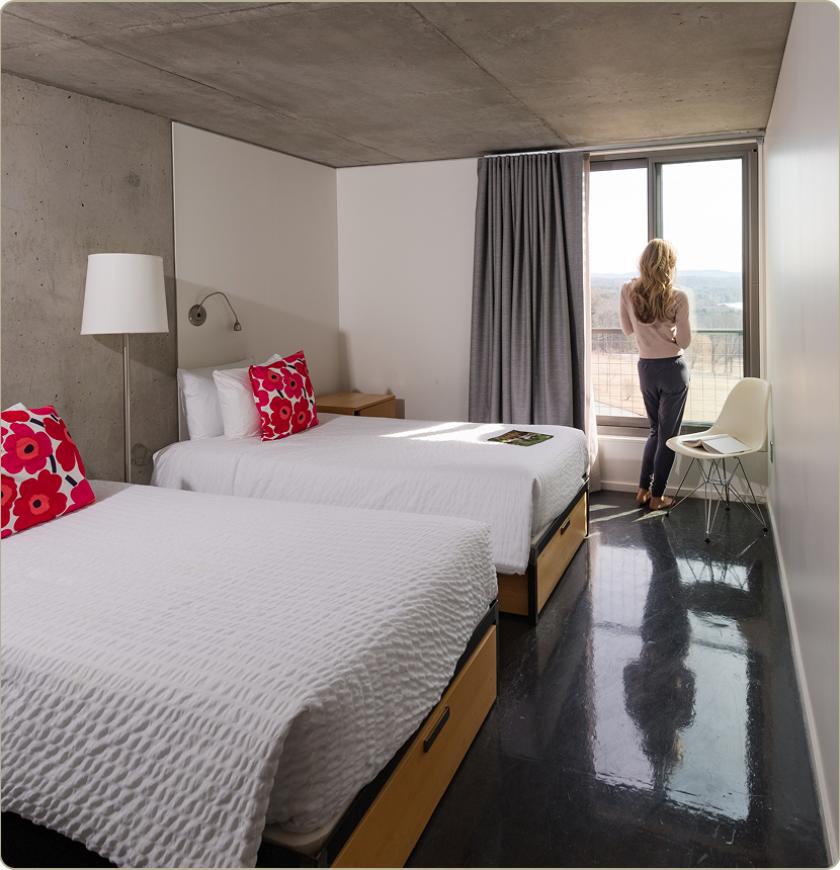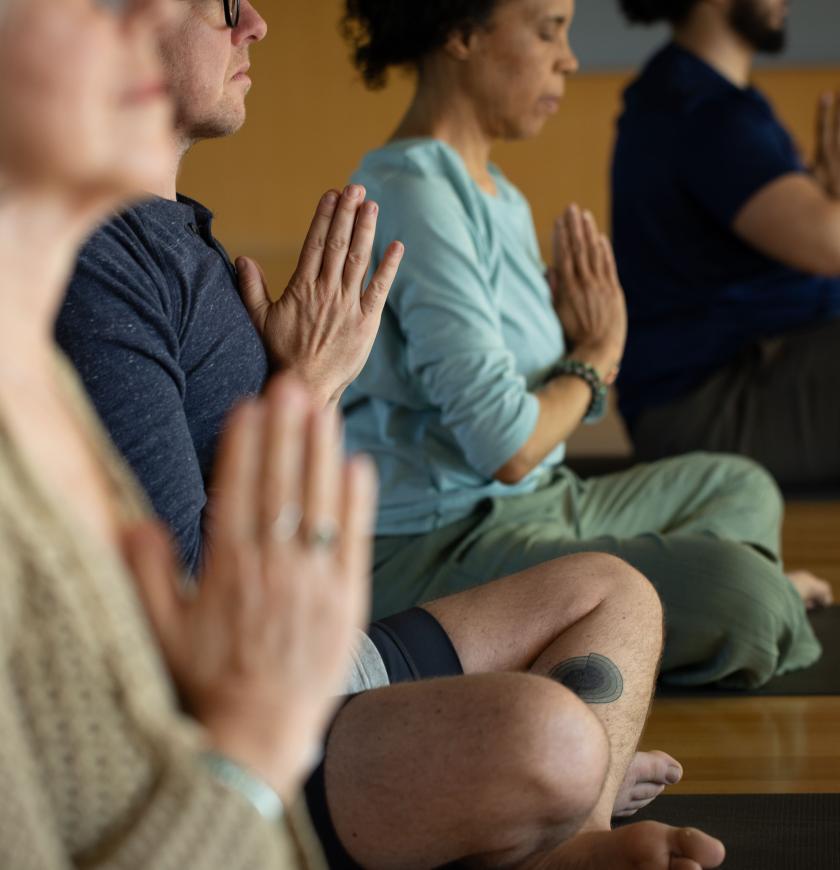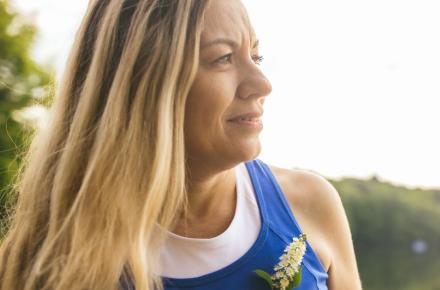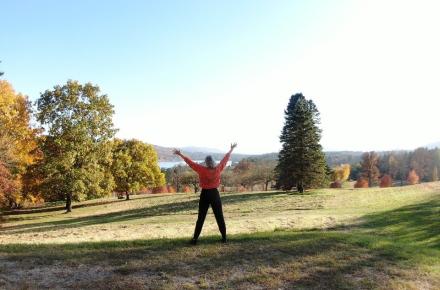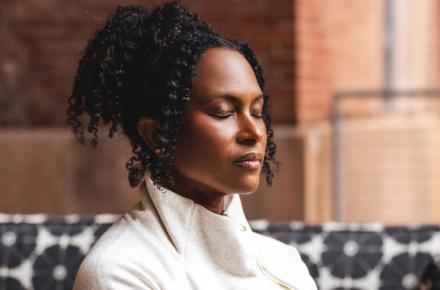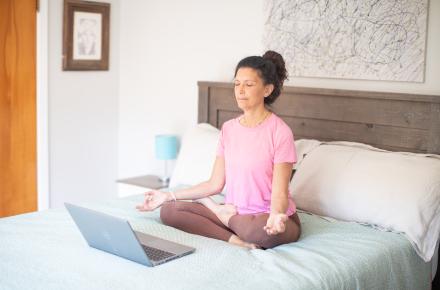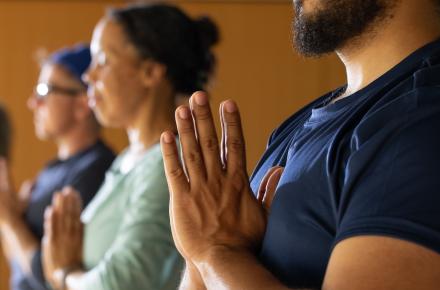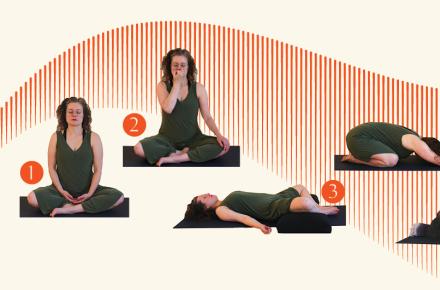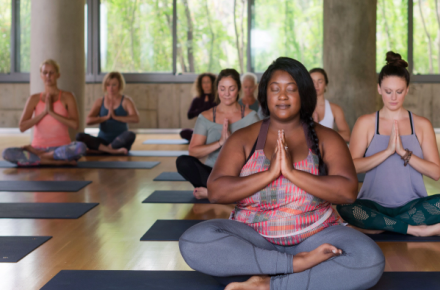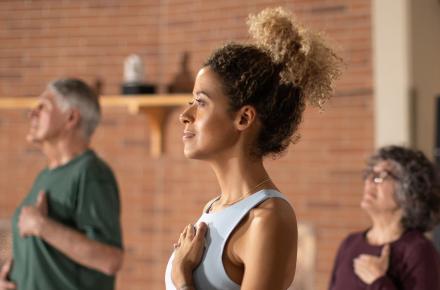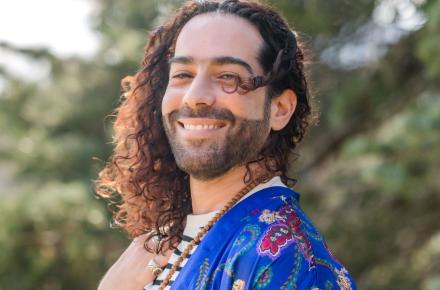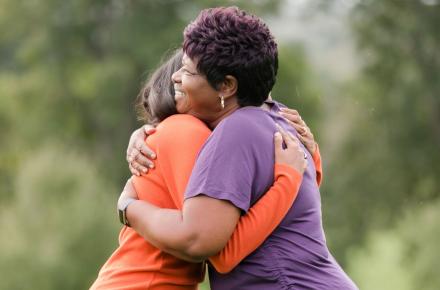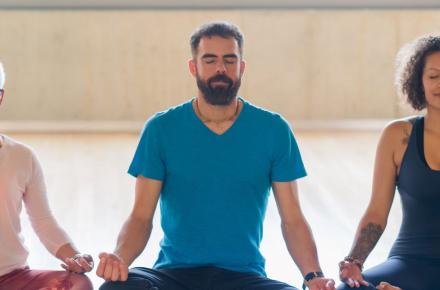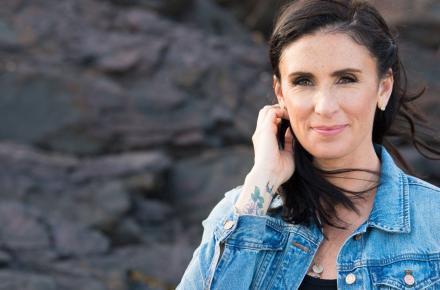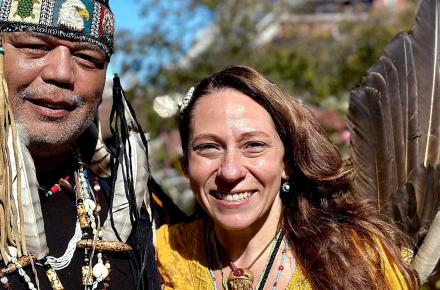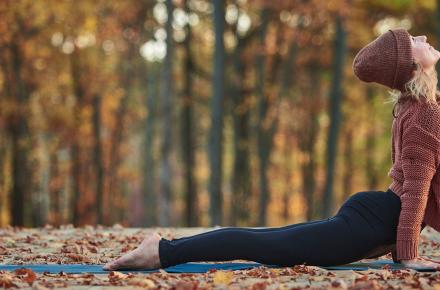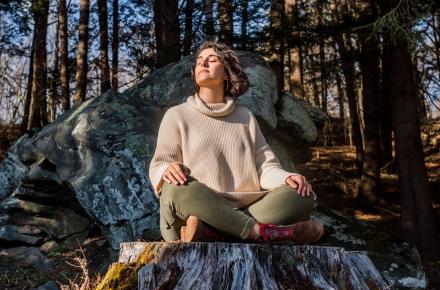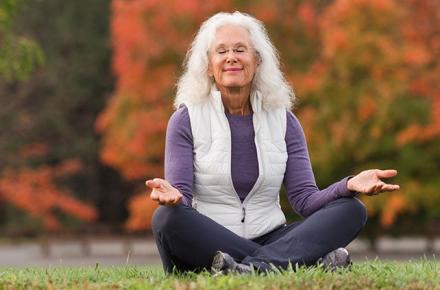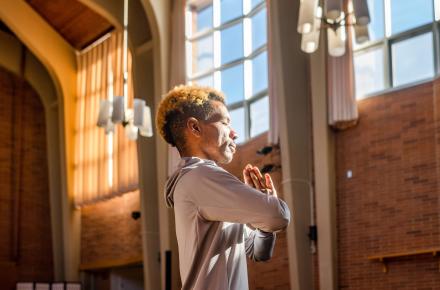A Living Laboratory for Yoga Research
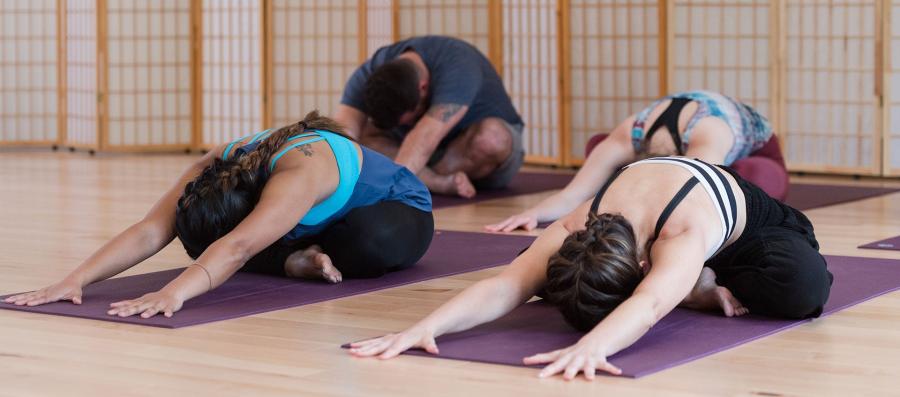
RISE, Kripalu’s evidence-based program for stress resilience and optimal living, is reaching more people than ever, with the help of a growing body of research that validates its benefits.
“Research has been instrumental in allowing us to take RISE to populations and organizations we would not have been able to serve otherwise,” says Edi Pasalis, Director of RISE Programming. “The scientific validation of these tools, on a wide range of quantifiable measures, has opened doors for the program and expanded its reach enormously.”
The program integrates yoga-based mindfulness tools, such as breathing and centering exercises, meditation, strengths identification, mindful listening, and movement, into an accessible, secular curriculum. RISE can be taught in a variety of formats, both at Kripalu’s campus or off-site in client workplaces, and all RISE facilitators are content experts in their areas, with a set of tools and personal experience that allows them to speak authentically to specific populations.
The program has been delivered to educators, healthcare and human services professionals, corporate teams, and law enforcement officers at more than 120 organizations, serving over two thousand people.
The Outcomes of RISE Research
Research on RISE thus far shows significant positive impact on a variety of scales—both immediately after and at a follow-up several months later. In the team’s most recent study, participants reported a 32 percent reduction in their level of perceived stress, a 13 percent increase in mindfulness and a 10 percent increase in empowerment. Research on RISE published in 2016 in the Journal of Workplace Behavioral Health showed multiple physical and mental-health benefits, including decreased heart rate, depression and burnout, and increases in relaxation, awareness and professional quality of life. Kripalu’s most recent RISE study also measured improvements in self-compassion, resilience, sleep quality and even vegetable and fruit intake. “Furthermore, results of outcomes in which participants put their experiences in their own words and stories have been amazingly strong, and illustrate the major impact RISE has on individuals’ work and home lives,” says Jeffery Dusek, Kripalu's Senior Research Advisor, a neuroscientist with a PhD in BioPsychology.
Further research aims to expand on these findings. Kripalu recently launched a study led by Sat Bir S. Khalsa, Kripalu's Research Director and one of the country’s most prominent yoga researchers, of a six-week RISE program at Boston’s Brigham and Women’s Hospital, aimed at alleviating physician burnout and increasing fulfillment among doctors. “One of our main activities moving forward will be to more fully understand the importance of RISE when delivered both at the retreat center and off-site,” says Jeff. “We’ll continue to develop study paradigms to bolster what we know about the program in terms of its effects on mindfulness, stress resilience, burnout and other markers.”
The RISE team is building on a large body of yoga and mindfulness research executed or sponsored by Kripalu over the past 10-plus years, led by the likes of Sat Bir and Sara Lazar, whose fMRI studies on meditation’s effect on the brain have broken new ground. According to Stephen Cope, who spearheaded Kripalu’s early forays into research, “It was perfectly obvious to us that we could not accomplish our mission—could not, indeed, influence mainstream America in any significant way—without establishing concrete scientific data to support our work. Second, it was clear that Kripalu was (and is) the only yoga institution in the United States with the kind of robust infrastructure required for a serious scientific program.”
A Vision for Future Studies
Kripalu’s infrastructure presents enormous possibilities. With 50,000 unique visitors to Kripalu annually, the retreat center could function as a “living laboratory,” Jeff says, that can provide a wealth of information on the impact of the Kripalu experience on everything from insomnia and diabetes to anxiety and depression. In addition to pre- and post-visit surveys on stress reduction, sleep quality, etc., how might guests fare on physiological measures, such as cortisol, blood sugar and blood pressure levels?
“Kripalu has the opportunity—the obligation—to find ways to understand what happens to their guests’ health and well-being as a result of being on campus, without getting in the way of guest experience,” Jeff says. “The trend of healthcare is moving from hospitals and clinics to centers like Kripalu and to patients’ own homes. As such, there are huge opportunities here to find ways that Kripalu programs can help transform people’s health, and address chronic conditions, such as diabetes, which cost the healthcare system—and individuals—millions of dollars per year.”
He imagines being able to recommend Kripalu experiences tailored to individual guest’s needs—a gentle yoga class daily to combat insomnia, for example, or a YogaDance® class and 15 minutes of meditation to address anxiety. “One of my passions is figuring out how we match the right intervention in the right dose to the right person,” he says.
Building a World-Class Research Initiative
In 2018, Jeff and other members of the RISE research team presented study results at the annual meeting in Baltimore of the Academic Consortium for Integrative Medicine & Health, which was founded 22 years ago with eight members and currently numbers 72 members, including Harvard Medical School, Stanford, Johns Hopkins, Mayo Clinic, and the Cleveland Clinic.
“Quite frankly, Kripalu’s research is operating in the same sphere as these world-renowned institutions,” Jeff says. He envisions Kripalu as a future hub for yoga-based, NIH-funded research. He plans to use the annual Samuel B. Hanser Visionary Award—an award overseen by Kripalu to support early-stage investigators interested in yoga research—to establish a network of yoga researchers to collaborate on multi-center studies. One area of particular interest for Jeff is how Kripalu Yoga can impact aging. “With the graying of America, Kripalu could be a mecca for healthy aging,” he notes, particularly since the compassionate, individualized approach of Kripalu Yoga makes it applicable no matter the practitioner’s age, size or fitness level.
“I imagine us working with healthcare facilities and health systems, and working collaboratively with partners who are leading the field,” Jeff says. “I firmly believe that, in the coming years, Kripalu will play an important role in improving individuals’ health and well-being and influencing healthcare systems around the country and the world.”
© Kripalu Center for Yoga & Health. All rights reserved. To request permission to reprint, please email editor@kripalu.org.
